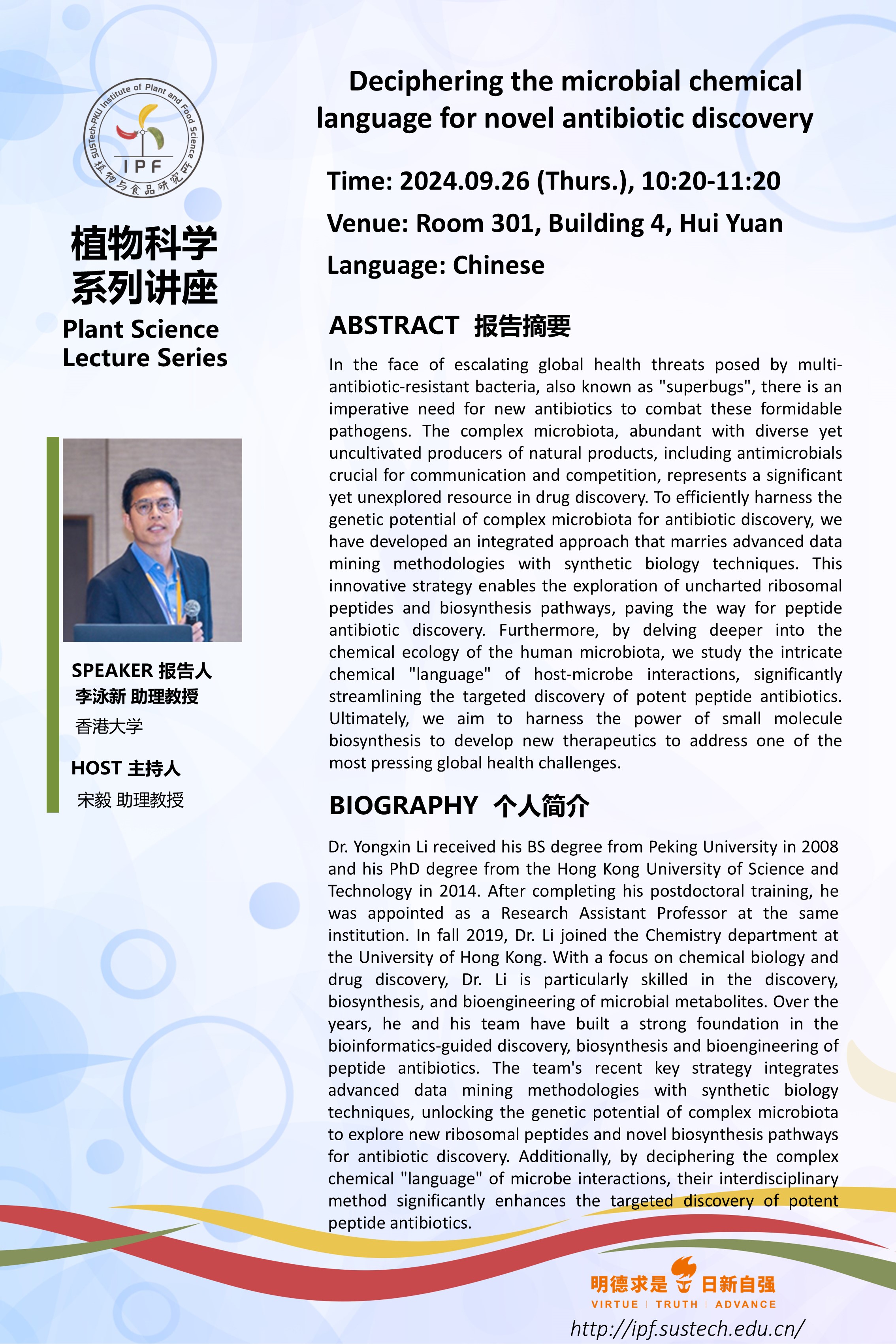
主讲人: 李泳新 助理教授(香港大学)
时间: 9月26日(周四)10:20-11:20
地点: 慧园4栋301
题目:Harnessing Traits for Breeding: from Evolutionary Biology to Crop Sciences
主讲:李泳新 助理教授(香港大学)
时间:9月26日(周四)10:20-11:20
会议地点:慧园4栋301
报告摘要:In the face of escalating global health threats posed by multi-antibiotic-resistant bacteria, also known as "superbugs", there is an imperative need for new antibiotics to combat these formidable pathogens. The complex microbiota, abundant with diverse yet uncultivated producers of natural products, including antimicrobials crucial for communication and competition, represents a significant yet unexplored resource in drug discovery. To efficiently harness the genetic potential of complex microbiota for antibiotic discovery, we have developed an integrated approach that marries advanced data mining methodologies with synthetic biology techniques. This innovative strategy enables the exploration of uncharted ribosomal peptides and biosynthesis pathways, paving the way for peptide antibiotic discovery. Furthermore, by delving deeper into the chemical ecology of the human microbiota, we study the intricate chemical "language" of host-microbe interactions, significantly streamlining the targeted discovery of potent peptide antibiotics. Ultimately, we aim to harness the power of small molecule biosynthesis to develop new therapeutics to address one of the most pressing global health challenges.
个人简介:Dr. Yongxin Li received his BS degree from Peking University in 2008 and his PhD degree from the Hong Kong University of Science and Technology in 2014. After completing his postdoctoral training, he was appointed as a Research Assistant Professor at the same institution. In fall 2019, Dr. Li joined the Chemistry department at the University of Hong Kong. With a focus on chemical biology and drug discovery, Dr. Li is particularly skilled in the discovery, biosynthesis, and bioengineering of microbial metabolites. Over the years, he and his team have built a strong foundation in the bioinformatics-guided discovery, biosynthesis and bioengineering of peptide antibiotics. The team's recent key strategy integrates advanced data mining methodologies with synthetic biology techniques, unlocking the genetic potential of complex microbiota to explore new ribosomal peptides and novel biosynthesis pathways for antibiotic discovery. Additionally, by deciphering the complex chemical "language" of microbe interactions, their interdisciplinary method significantly enhances the targeted discovery of potent peptide antibiotics.